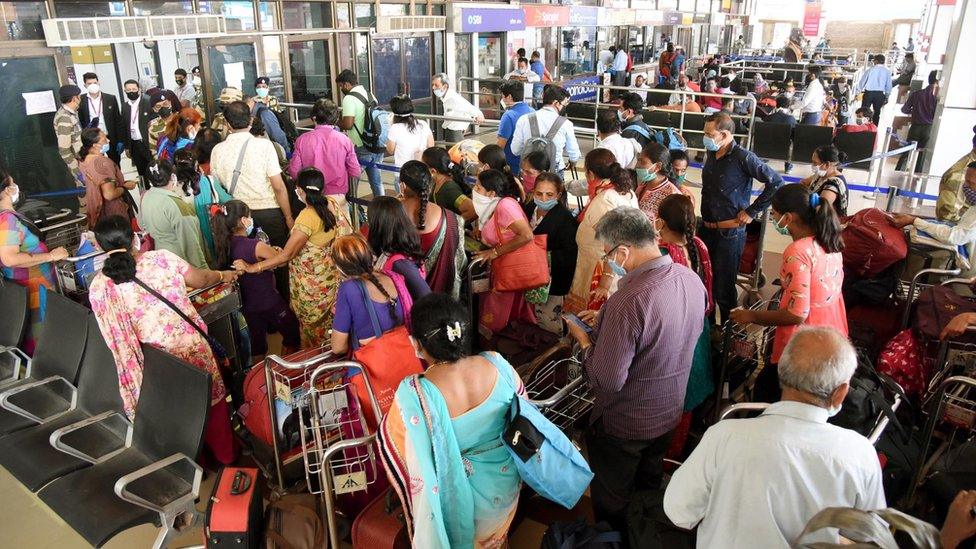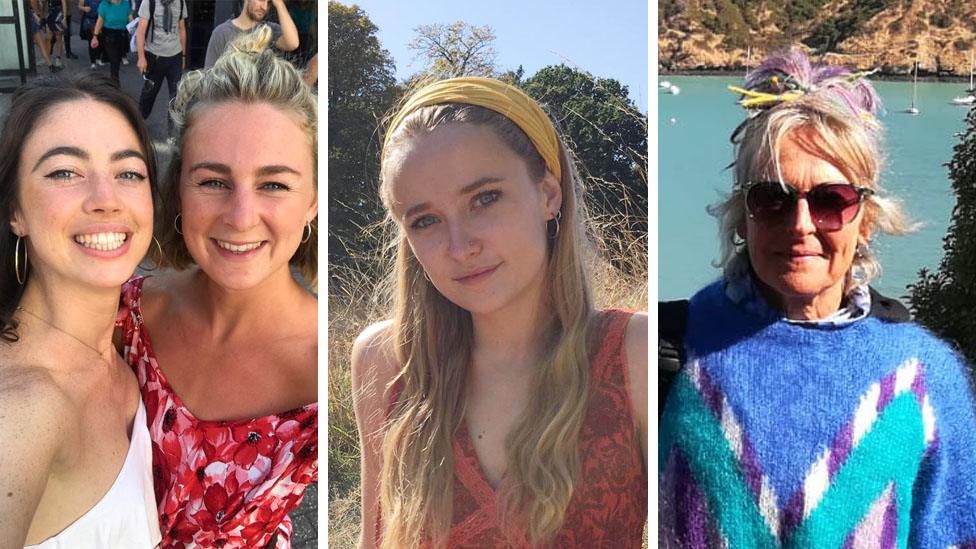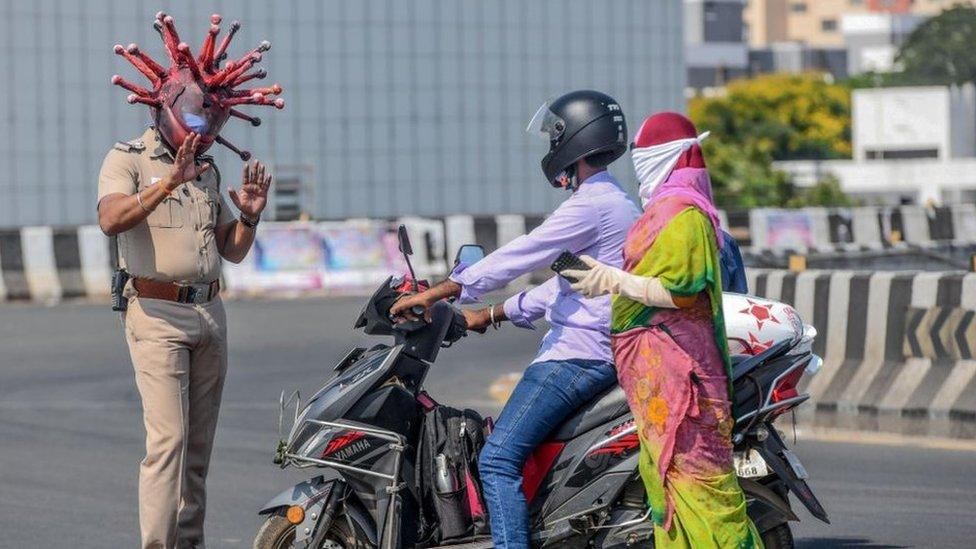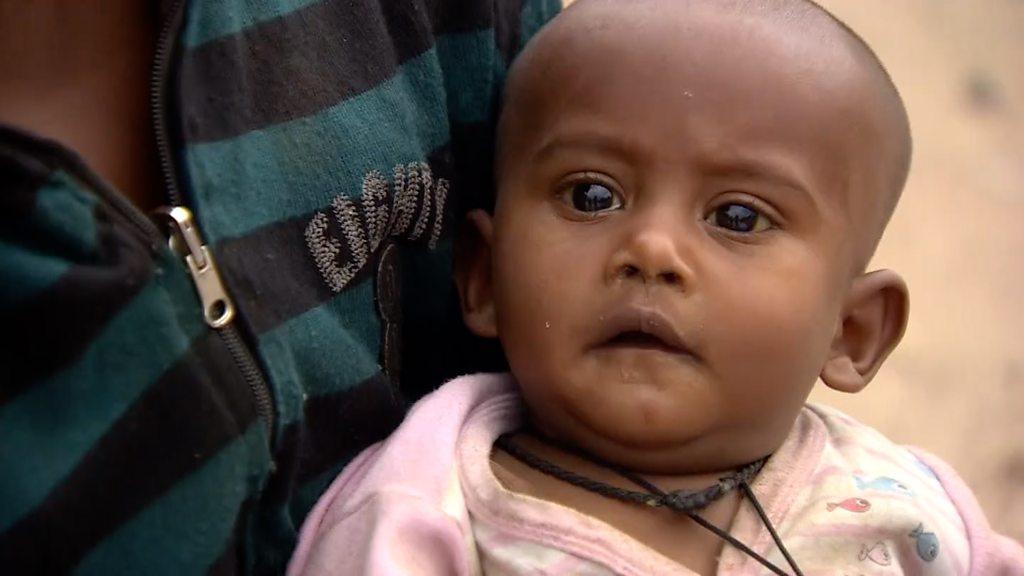Coronavirus: UK tourists in India complain of being 'abandoned' by government
- Published

Patna airport was overcrowded during the second day of lockdown imposed by the Indian government
Britons in India say they have been left "abandoned" with "no help whatsoever" from the UK government.
The entire country, which has a population of 1.3 billion, was put under lockdown on 23 March with less than four hours notice, in an attempt to slow the spread of the coronavirus.
A petition to repatriate UK citizens has gained more than 25,000 signatures.
The Foreign Office said it was working "around the clock" to support British travellers and help them return home.
It said it recognised many British nationals had been finding it difficult to return to the UK due to "unprecedented international travel and domestic restrictions".
Announcing the lockdown, India's prime minister, Narendra Modi, said there would be a total ban on people leaving their homes for 21 days.
He appealed for people not to panic - but crowds quickly mobbed stores in major cities and correspondents say it is not clear how people will be able to access food and other essentials.
India has around 900 confirmed cases of coronavirus, but experts warn the real number of infections could be far higher as the country has one of the lowest testing rates in the world.
Millions of people in India are struggling for food during the country's coronavirus lockdown
Beverley Kershaw 55, from Oldham, Greater Manchester, had been expecting to fly home on Saturday but is now stuck in Candolim, Goa.
She says her flight was cancelled with "no warning" and she now fears she will not be back in the UK on time to get the medication needed for her autoimmune disease.
She is also worried about her elderly parents in the UK.
Bethan Hall, 30 and from Brighton, is in Goa with 22 other British citizens and says all shops in the region are closed.
"We all feel totally abandoned by the UK government," she says.
"The Germans that we are staying with are all being picked up this week and none of us can even get through to our embassy - not even the people who are here who are high risk. They seem to think it is acceptable to wait for commercial flights to resume while their people slowly starve."
'Dangerous'
The UK government said it was seeking to keep key transit routes open as long as possible and that it was in touch with international partners and the airline industry to make this happen.
It said consular staff were supporting those with urgent need while providing travel advice and support to those still abroad.
Ms Hall says she has been told of available routes via the Middle East departing after 15 April - but worries these flights could also be cancelled. If they are not, she fears they will be extremely expensive.
"It's vital that the government begins to repatriate people before the situation here worsens," she says. "It's already dangerous for many people."
Under the "total lockdown" measures, all non-essential businesses have been closed and almost all public gatherings are banned.
As a result, millions have been left jobless and without money, which sparked an exodus from major cities such as Delhi, where thousands of migrant workers are setting out on long journeys back to their home villages after transport was stopped.
Saba Naqvi, a local journalist reporting on the lockdown says although she empathises with stranded tourists, she fears more for Indian nationals, who are now leaving the major cities in droves.
She said: "It's a bad situation right now. It's a far poorer country than Western countries, so this will be especially bad for the poor.
"People are migrating by the thousands out of the big cities into the villages, by foot. Many do not know how they will be able to eat."

A SIMPLE GUIDE: What are the symptoms?
AVOIDING CONTACT: Should I self-isolate?
MAPS AND CHARTS: Visual guide to the outbreak

- Published27 March 2020

- Published28 March 2020

- Published28 March 2020
